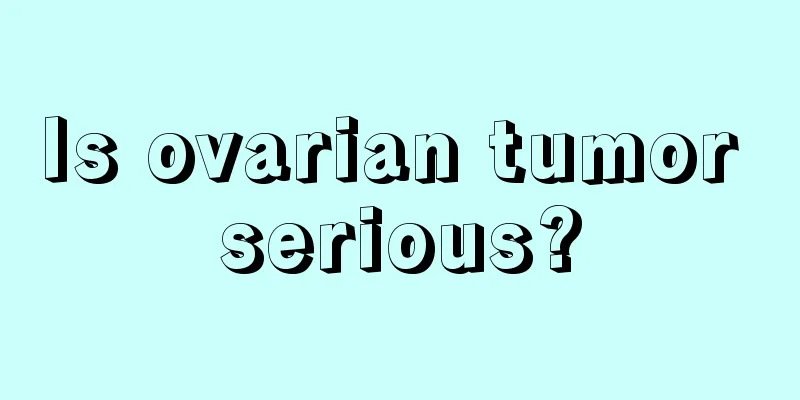How to do rehabilitation care for pituitary tumors

|
Surgery for pituitary tumor does not mean complete recovery. To overcome the disease, postoperative rehabilitation and care are still needed. In addition to paying attention to diet and proper exercise, since the surgical site is located in the relatively sensitive part of the brain, it is also necessary to prevent possible complications after surgery and have regular check-ups. Let me see how experts introduce the rehabilitation care for pituitary tumors. 1. Pay attention to diet after pituitary tumor surgery: Some dietary therapy plans can be adopted after pituitary tumor surgery. For example, you should pay attention to eating more foods rich in vitamin A, carotene and vitamin B2; at the same time, choose foods high in phospholipids to improve brain health, such as egg yolks, fish, shrimp, walnuts, peanuts, etc.; you should also consciously choose more eggs, animal liver, kidney, carrots, spinach, millet, cabbage, tomatoes, day lily, water spinach, wolfberry, etc. Patients with pituitary tumors need to avoid irritating foods such as tobacco, alcohol, spicy food, and cold food, as well as stimulating drinks such as coffee and strong tea. Patients with postoperative swallowing dysfunction should be fed a liquid diet through a nasogastric tube. Eat less spicy and greasy food, and avoid eating catfish. Postoperative diet should be nutritious, light, and easy to digest. 2. Pay attention to the occurrence of complications after pituitary tumor surgery: After the surgery of pituitary tumor, some cases may appear after a few days after the removal of the gauze strips used to pack the nasal cavity. If this happens, do not panic, and immediately see the nearest ENT department. In mild cases, temporarily filling the nasal cavity with cotton balls will be effective, while in severe cases, angiography examination is required. If you experience nasal congestion or continuous discharge of mucus or bloody secretions from your nasal cavity about one month after pituitary tumor surgery, you can use nasal drops to reduce inflammation, or go to an ENT department to clean your nasal secretions. 3. Routine follow-up after pituitary tumor surgery: After surgery for pituitary tumors, regular follow-up examinations should be conducted, including MRI enhancement in the sellar region, pituitary endocrine function, improvement in clinical symptoms, changes in visual field, and whether complications occur. Hormones are usually checked on the second day, one week, and one month after surgery; MRI enhancement in the sellar region is checked one week after surgery as a follow-up baseline, and MRI enhancement in the sellar region is checked again three months after surgery. The time for subsequent follow-up examinations can be determined based on the advice of the attending physician during follow-up visits. The above is a brief introduction to "How to do rehabilitation care for pituitary tumors". We hope that our introduction can help more patients. Experts remind patients to have a follow-up examination after surgery. Here, I wish the patient a speedy recovery. |
<<: How to care for patients after pituitary tumor surgery
>>: How to best treat a pituitary tumor
Recommend
Why does pituitary tumor recur?
Why do pituitary tumors recur? Pituitary tumors a...
What is the cause of pain on the inside of the elbow?
In daily life, many people are prone to pain in t...
Is the salt water diet good for the body?
I believe many of my friends know about the salt ...
What is the method of using sanitary napkins
We all know that women use sanitary napkins durin...
Diagnosis of rectal cancer——painless colonoscopy
Rectal cancer is a malignant disease that serious...
What are the medicinal liquors for traumatic injuries
When it comes to injuries from falls, the use of ...
What to do if your fingers feel hot like burning
A common problem we often encounter in winter is ...
Is the incidence of gallbladder cancer high in China?
Primary gallbladder cancer has a relatively low p...
What to eat to maintain the prostate? What foods are good for the prostate?
The prostate is very important for men. In additi...
What vitamins are lacking in acne
The quality of your skin is closely related to yo...
How to deal with formaldehyde irritation to eyes
Formaldehyde is a very harmful substance. We all ...
What is the process of getting braces like?
Some people are born with neatly arranged teeth, ...
What fruits can relieve constipation?
Defecation is a normal metabolic phenomenon of pe...
What effect does eating too spicy food have on your stomach?
Many people cannot live without spicy food. Spicy...
Could headache be caused by cervical spondylosis?
Anatomical studies have found that the 1st to 4th...









